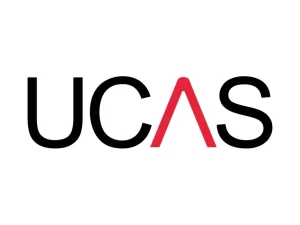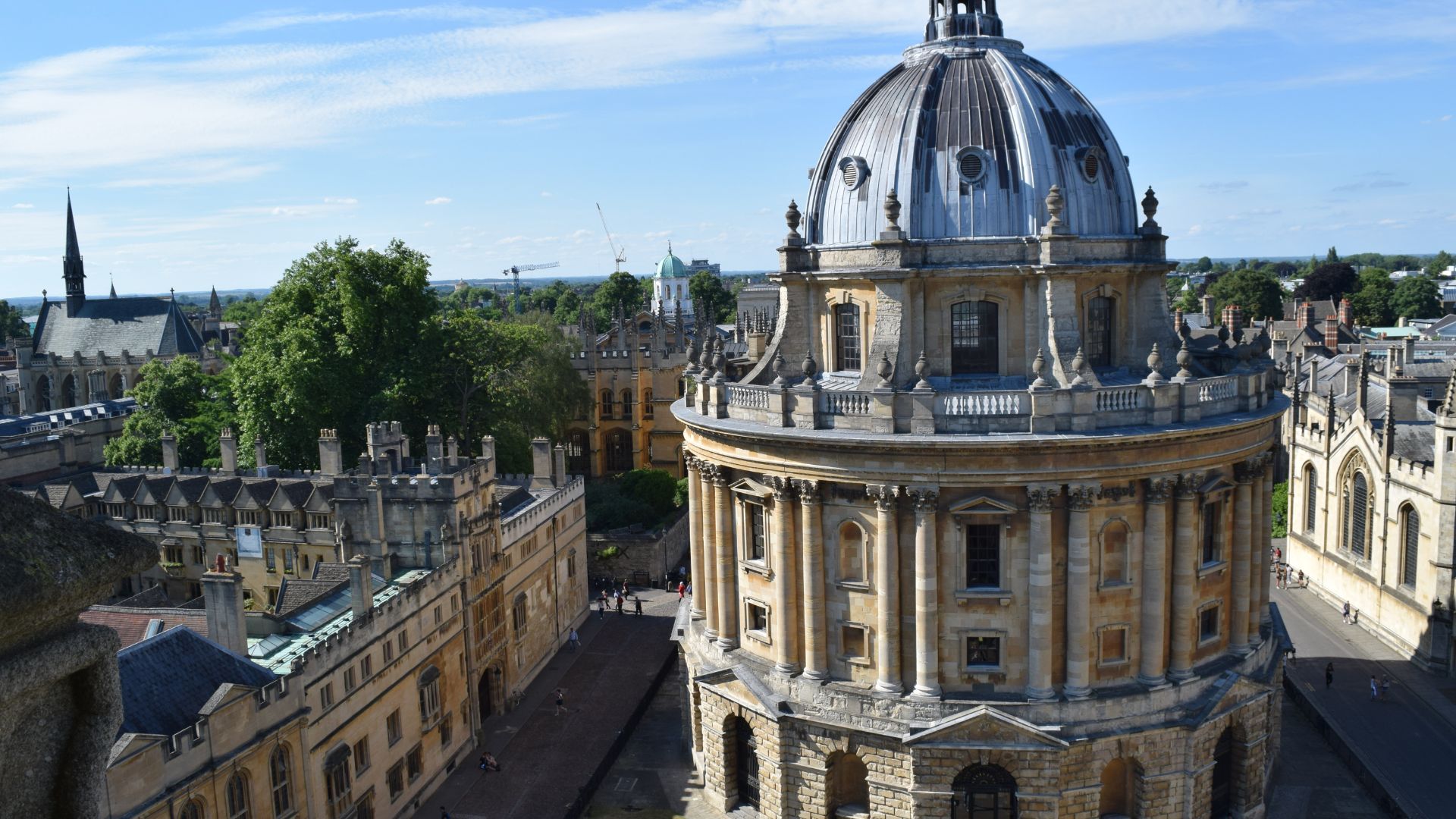Obtaining a degree from a UK university offers many benefits. British universities teach students to think critically and independently, and to analyse freely. They are respected around the world because of their high standards, and they run courses at all levels, so you don’t have to wait until PhD level before you specialise in a particular discipline.
This gives international students lots of reasons to apply. Are you in the US or elsewhere overseas and looking to apply to a UK university? Here’s how to do it and other things you need to know.
Your options when applying to a UK university
There are three main ways to apply to study at a university in the UK:
- Through the UK’s Universities and Colleges Admissions Service, commonly known by its abbreviation ‘UCAS’. This is the usual method, and international students can use this system just as UK students do.
- Through the Common App. Some UK universities allow applications through the US Common App portal.
- Directly to the university through its own application system. This isn’t possible at all universities, but it can be quicker, more straightforward if you only want to apply to one university. If you decide to apply to the university directly, always check their policy

Deadlines for applying through UCAS to UK universities
Unless it falls on a weekend, the deadline for applications is the last Wednesday of January. Currently, the equal consideration deadline (ECDs) is the final Wednesday of January, which will fall on 29 January 2025.
UCAS must have received your application by 18.00 UK time. If you’re applying for courses such as medical courses, veterinary medicine or dentistry, or for courses at the universities of Oxford or Cambridge, the entry deadline will be 15 October 2024. The entry deadline for some music courses is also 15 October.
Once the deadline for initial applications closes, UCAS offers further options a little later if your application hasn’t worked out. These are the UCAS Late applications, Extra process and the Clearing process, which we discuss further below.
Additional things to know when applying for UK universities
Note that to apply for university through UCAS, you must pay a small fee, which allows you to apply up to five courses. In the case of medical courses, veterinary medicine or dentistry, you can only apply for up to four courses in the discipline, but five courses in total, which allows the student to be considered for a “back-up” subject if their medical application is unsuccessful.
If applying to conservatoires through UCAS, you can choose up to six courses and will also probably have to pay assessment fees for auditions, which depends upon the conservatoire itself. If applying to Oxford or Cambridge universities, you can only apply to one or the other.
You’ll need a student visa to study in the UK, when applying as an International Student. You’ll also have to pay a healthcare surcharge. You can find out more about applying for a UK student visa on the Government website.
How to apply through UCAS
Applying from abroad is relatively straightforward and is done on the UCAS website https://www.ucas.com/
To apply through UCAS, follow the steps below.
Register on the UCAS Hub
You’ll first need to register with the service on the UCAS Hub. Answer the registration questions, including the course type you’re interested in and the year you wish to study. The site will take you to the UCAS Hub Dashboard. There you can begin your application by clicking on ‘Start application’.
Answer all the questions
You don’t have to complete your application all in one sitting. You can save your application and return to it; but you must answer all the mandatory questions before you can submit your application. Skipping sections isn’t allowed.
You don’t want to miss any important updates regarding your application, so keep your email address up to date. Only your primary email address will receive news from UCAS. You can change your email address at any time.
You’ll have to give details on your residency status so that the university can decide what to charge you. Note there will be specific questions for UK students that you’ll have to answer about your ethnic background, occupation, etc. These are for monitoring purposes and won’t affect your application. The universities receive the details in order to supply you with any extra help you might need during your studies.

Be prepared to answer questions about how you’ll fund your studies; be aware, however, that UCAS doesn’t manage student finance applications.
If you wish to nominate a parent, guidance or adviser to speak to UCAS on your behalf, you can, but the service won’t be able to share your login details with them.
State your education history
You must provide your education history from your secondary education onwards, plus the results of your studies for applying for UK Universities as an International Student . UCAS can process certain exam results, so if you’re waiting for exam results, you must provide these when you get them. In the case of conservatoire applications, include up to five schools, colleges and universities. Include any junior departments or academies you’ve attended as well.
If you’re studying for a qualification or awaiting results, your referee will state your predicted results when supplying UCAS your reference. This is important because some colleges and universities won’t look at your application without them. Even if you started college or uni but didn’t complete the course, you must put this, including the dates you finished and started. If you left without a qualification, mention this.

Add as much detail as possible, including grades and results, so that the universities have all the information they need to decide whether to process your application further. If your qualification isn’t in the box of countries and qualifications listed, just put your qualification in ‘Other’.
Although UCAS can send some results if you have to supply proof of your qualifications or results, international students often have to send this directly to the universities themselves. Different institutions have different policies. Whereas some may wish to see proof right at the start of your application, others may wait until further into the process and then request it.
Add your employment history
If you’ve had any full-or part-time jobs, detail them, including the company name, address, start and finish dates and the job description. You can add up to five.
Save any voluntary work or unpaid work, including work experience, for your personal statement. Leave the employment history section blank if you’ve not had any paid work experience.
Choose your courses
In the case of non-conservatoire applications, you can apply for up to five courses (some now, some later if you prefer, but all before the deadline) and don’t have to state any order of preference. The institutions won’t know where you’ve applied until you reply after any offers.
Write your personal statement
This is one of the harder parts of the UCAS application. You may have heard UCAS is scrapping personal statements, but this isn’t completely true; the service is merely reforming it by splitting into a series of free-standing questions to help guide applicants. UCAS doesn’t envisage introducing these reforms until 2025 for 2026 entry.

The personal statement must be at least 1 000 characters and provides room for up to 4000. It’s your big opportunity to express your interest in the course and why you’d like to study at the university or college, and to outline your skills and experience and how they support your interest in the subject. As an international student, it could be beneficial to explain why you’d rather study in the UK than at an institution in your home country. State why you’d be a good asset to the course and to the university… what you bring to the table. Reflect on your career aspirations, and discuss how this stage of your education could help you achieve your career ambitions.
A word of advice:
Be humble and honest, but still enthusiastic when you’re writing your personal statement. Plan it, rather than write it off the top of your head and straight into the box on your application. Go through the key points with a teacher or family member, and write several drafts until the statement sounds like you and reflects your aims and experiences. Don’t forget to have someone proofread it as well for spelling and grammar errors.
Submit the application
When you’ve completed your application, submit it and you’ll then be able to view the full version. This gives you a chance to review it and make any necessary edits. UCAS will then ask you to read the declaration and agree to it. The system can then process your info and send your application to your universities and colleges.
Add a reference, pay the application fee and send UCAS your application
Until you add your reference to your application, it’s not possible for UCAS to submit your application. Your reference is a written recommendation from a teacher, adviser or other professional who knows you academically. Unless you have permission from your chosen universities, you’ll need a reference. If you’re applying to a conservatoire, you’ll need two references (one academic and one practical, both written by different people).
Late Applications
As we have mentioned, the equal consideration deadline is the last Wednesday in January. However, many universities understand that international students haven’t thought about studying in the UK early enough to be ready for this deadline, so they leave their applications open later. Not all universities do this, so be sure to check with each university to see if they will accept a late application.
UCAS Extra
Don’t panic if you’ve used up all your choices and have either declined all your offers or not received an offer? UCAS offers an ‘Extra’ service which opens in late February and closes in early July (which is when Clearing opens). This service allows applicants to add an extra course to their choices.
All you have to do is check what courses are free, using the ‘Search courses with vacancies’ tool. Contact the institution to see if they’d consider looking at your application. Then add the details to your application.
If you don’t hear from the institution after 21 days, you can wait or, in the event of the following, add another choice:
- reply to an offer received and agree to meeting entry requirements;
- if you receive an offer but don’t want to accept it, you can decline it;
- If you don’t receive the offer of a place, you can search for other courses and add another choice.

UCAS Clearing
Clearing opens in early July, after UCAS Extra has closed, and is the same for international students as it is for UK students. The only difference is that international students may need different documents or additional documents.
Clearing itself is the process you can enter if you haven’t received an offer yet or when you change your mind about what you want to study and/or where. Universities use Clearing to advertise course vacancies, which enables you to browse courses. The universities will do this continuously between the start of Clearing and the final results day for UK students, which is the third Thursday of August. Even on the final day, they’ll still be adding course vacancies.
Clearing is for you if:
- you’re applying after 30 June (applications received after 18.00 UK time on this day automatically go into clearing);
- you have no offers from a UK university or college;
- you’ve not met your conditional offer’s entry requirements;
- achieved the grades you needed but wish to change course.
Clearing officially closes on 15 October, although many universities will stop accepting students well before this date.
Need help with your UCAS application?
We have the necessary international experience to help you with your choices.
Our detailed knowledge of the universities, courses, campuses and application processes in the UK, Europe and Canada means we can guide you to maximise your chances of getting onto the course you want.
We offer a totally individual service. All our appointments are one-to-one, and there are no group meetings. This enables us to create a bespoke application based on your own ambitions, your school grades, and your wishes and so your application to study in the UK is optimised.
Contact us in the first instance to set up a call to discuss your requirements.

Frequently asked questions about Americans applying for UK universities via UCAS
How to apply to UCAS as an American student?
American students can apply through UCAS by registering on the UCAS website, completing the application form, including a personal statement, and submitting it along with the required fee. Ensure you meet the specific requirements for international students.
What is the UCAS application process?
The UCAS application process involves selecting up to five courses, filling out personal details, educational history, and a personal statement, getting a reference, paying the application fee, and submitting the application through the UCAS portal.
How much does it cost to apply through UCAS?
The application fee for UCAS is £22 for a single choice or £26.50 for multiple courses (2024 entry fees).
When should I contact Expat Student for help with my UK university application?
It’s recommended to reach out to Expat Student 6-12 months before the application deadline to ensure ample preparation time.
What are the UCAS application deadlines for 2025?
The deadline for medical courses and all applications to Oxford or Cambridge is 15 October. For most other courses it is the last Wednesday in January.






